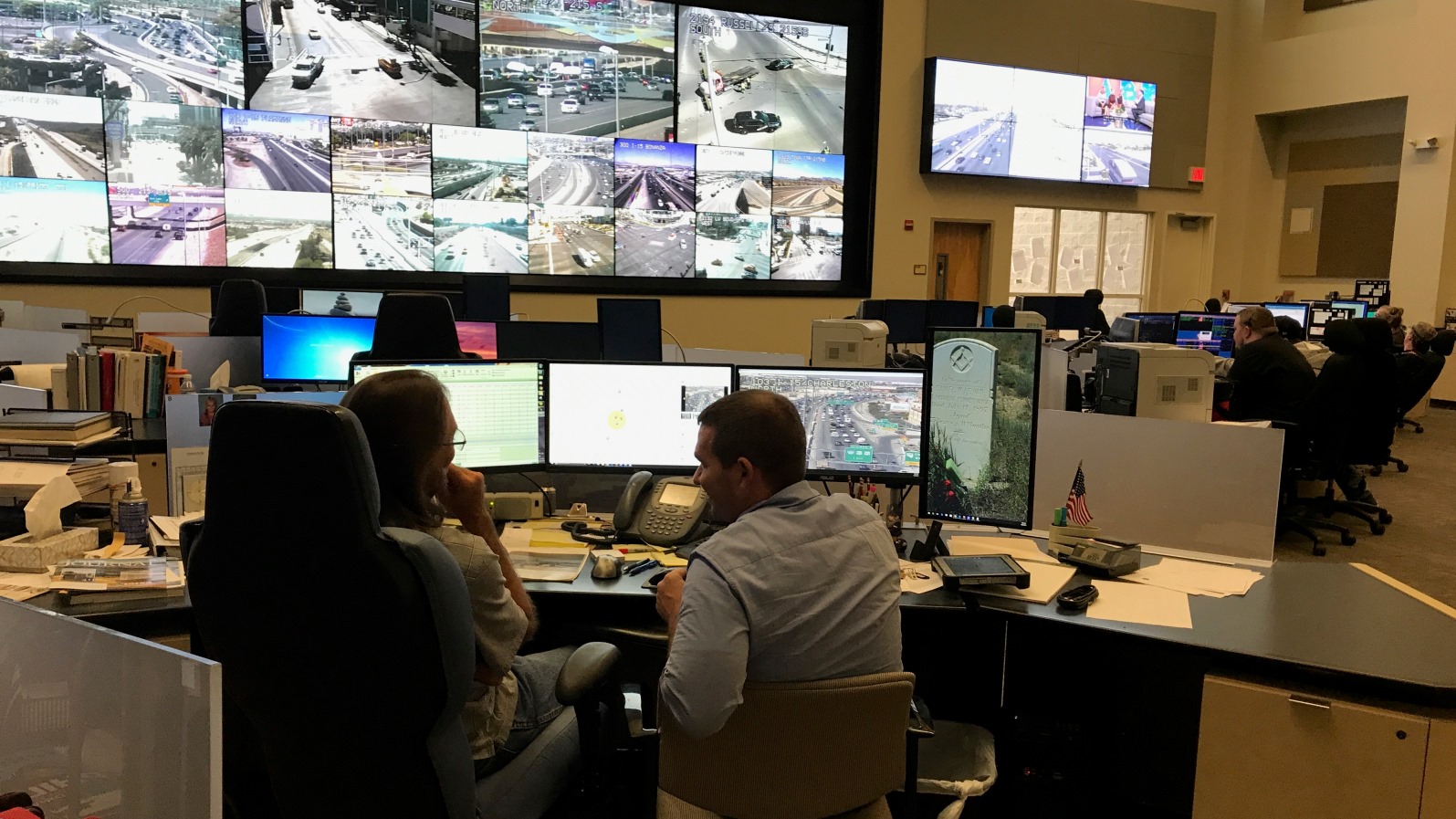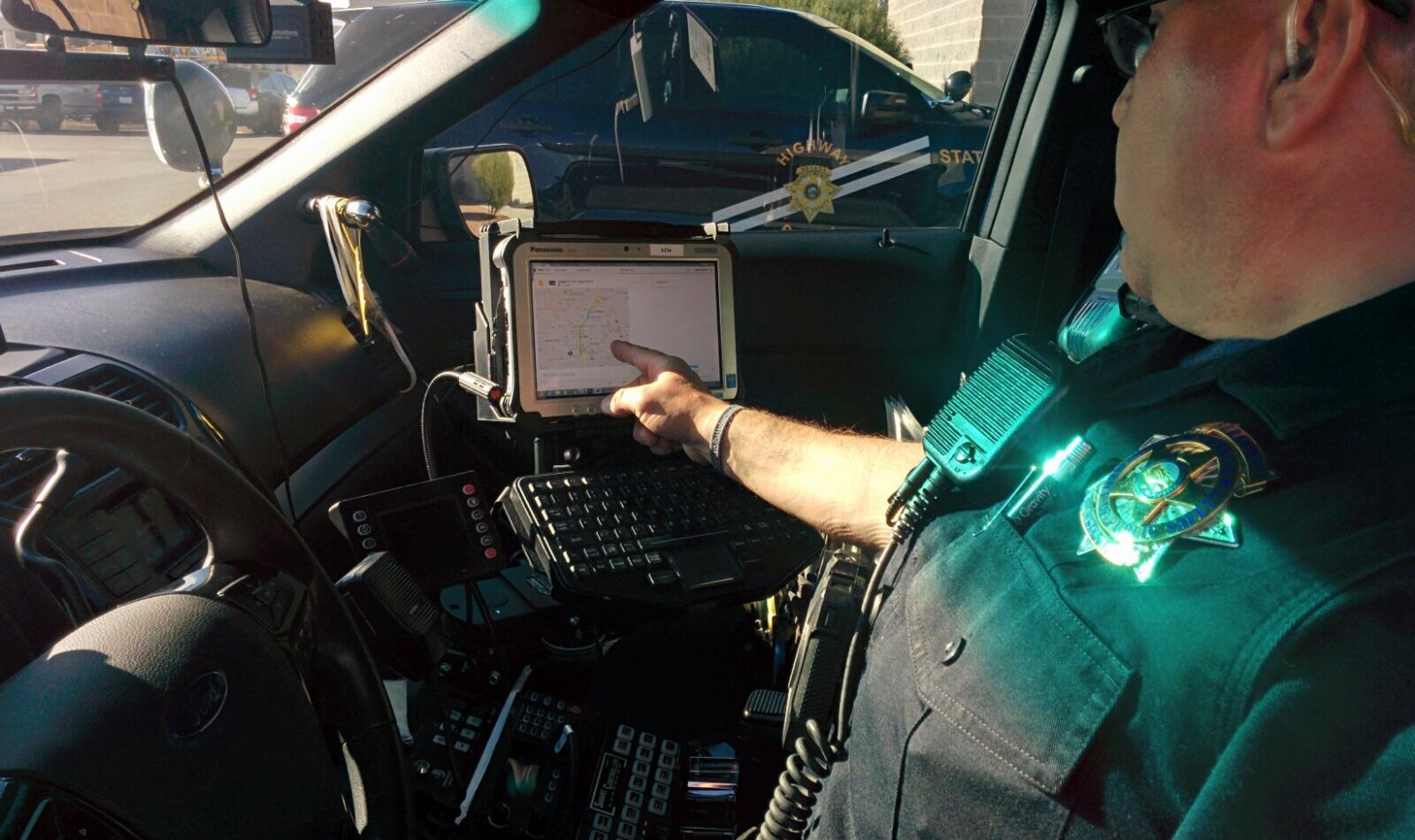Speed limits, crashes and bumper-to-bumper traffic may become a thing of the past (or at least less of an annoyance) thanks to Israeli technology.
A startup called Waycare is helping to put the smarts into smart cities by monitoring everything to do with traffic flow – traffic lights, road sensors, security cameras and data sent from connected cars. Waycare consolidates and makes sense of all that data for a city’s traffic management center.
The company recently announced a $2.3 million seed round and a pilot program in Las Vegas. The results could make commuting a lot more efficient and – more importantly – safe.
“Fixed speed limits are kind of dumb,” Waycare’s CEO Noam Maital tells ISRAEL21c. “You don’t need the same speed limit at midnight as at six in the morning or if it’s raining.”
Accordingly, speed limits could be variable depending on both real-time and historical data on a particular segment of road.
How about accidents? Cities already know where and when fender-benders are most likely, but police are dispatched only reactively, Maital points out. What if first-responders could be deployed before incidents develop?

Waycare technology breaks each day into two-hour segments. “We look at where traffic incidents are most likely to occur in that two-hour timeframe to shift the traffic management center from reactive to proactive,” Maital says. Waycare automatically and manually provides prompts for operator intervention.
By networking data from the many traffic cameras already in place, a traffic-control center can see what’s happening before police and ambulances arrive in case of an accident. “That way, they’re not arriving blindly. They know what to bring,” Maital explains.
The Las Vegas Highway Patrol is working with Waycare to implement “traffic calming” tactics such as dynamic traffic signs that alert drivers that a dangerous area is around the bend.

Connected cars
The real key to making a system like Waycare work is incorporating data from vehicles. That’s coming fast: 30 percent of new vehicles are connected, meaning they’re automatically sending information on how they’re being driven to someone, somewhere – say, the automaker a fleet manager.
Data can also come from the GPS device on your phone. Apps like Waze and Google Maps record how fast you’re going, when you brake and when traffic has stalled. Why not use that in transportation management?
“We have no interest in monitoring cars on the individual level. It has no relevancy for traffic management and it’s not what the city wants or needs,” Maital assures motorists worried about privacy. “One vehicle doesn’t tell you the complete story.”
The coming generation of autonomous vehicles will increase the amount of data being generated exponentially. But city traffic centers aren’t ready.
“We’re putting smart cars on dumb roads,” Maital laments. “Autonomous vehicles are due to generate 1-4 terabytes of data a day. Traffic management centers today only have the ability to digest 20-50 gigabytes of data, and that’s for the entire city. We’re heading for a bottleneck where we can’t put autonomous vehicles on the roads because the infrastructure is not prepared for it.”
Paradigm shift
Fixing our broken traffic systems is critical. A recent study by the US National Highway Transportation Authority found that over 40,000 Americans died in traffic crashes in 2016 – the highest number in five years. Traffic congestion and damage from accidents cost the US economy nearly half a trillion dollars a year.
Worldwide, 1.3 million people die on the roads every year, with another 20 million injured or disabled. Car crashes are the main cause of death among young people aged 15 to 29 in the US.
“There needs to be a paradigm shift in how cities think about multimodal transportation,” says Maital.

He started Waycare two years ago with Shai Suzan (now the company’s chief information officer) and CTO Idan Hahn hoping to solve a problem he had discovered in his research.
“The amount spent on preventing homicides or terrorism was completely disproportional to combatting fatalities from traffic accidents. So we thought, let’s see how we can use technology like AI [artificial intelligence] and data learning to impact our communities,” Maital tells ISRAEL21c.
Interest in the technology is worldwide. Maital recently went to Singapore to participate in an automotive conference sponsored by Israeli autonomous vehicle technology leader Mobileye. Maital continued on to Tampa, Florida, where a second pilot program is starting soon.
Waycare employs 10 people in the company’s Tel Aviv headquarters and its satellite office in Palo Alto, California.
Waycare’s seed investors — Spider Capital, Innogy SE, Goldbell Investments, UpWest Labs, Janom, Zymestic Solutions and SeedInvest – are making it possible for the company to build up its development team and expand further into in the US, as well as to Europe and Asia. Partnerships with telematics and navigation providers are in the works.
“Waycare is on a path to building the operating system for smart cities,” said Spider Capital managing partner Michael Neril.
For more information, click here.

















